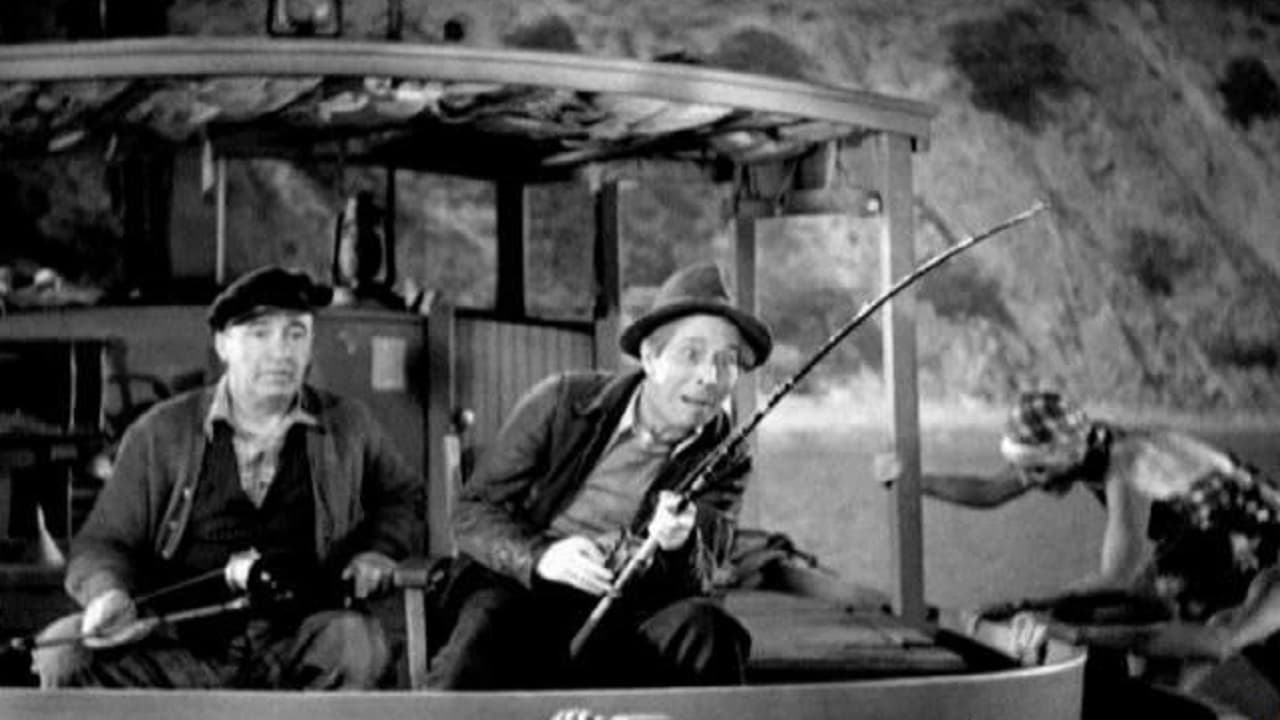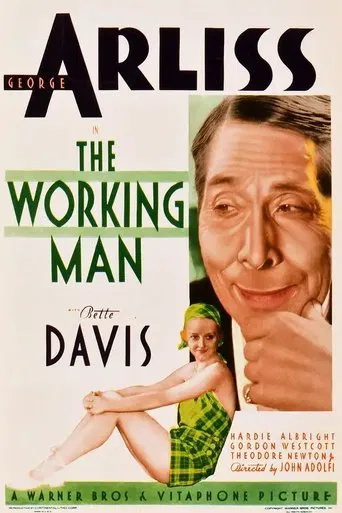

George Arliss does his usual enjoyable turn as a wily old patriarch running rings round the rest of the cast while adroitly covering his tracks in 'The Working Man', which takes him out of his usual historical fancy dress and instead places him at the helm of a very contemporary tale of post-Crash America; complete with a Thoroughly Modern young female lead in the form of Arliss's young blonde protégé Bette Davis.With America at the time sunk in the depths of the Great Depression, Arliss's extraordinary manipulation of two competing shoe manufacturers pretty much on a whim - played as good-natured force - provides a bizarre commentary on its time; and Arliss remains fun to watch over seventy years after his death.
... View MoreCONTAINS SPOILERS!!!Last night we watched our favorite George Arliss film, "The Working Man" (1933). This one not only has Arliss, but young Bette Davis (in her second film with Arliss, who more or less "discovered" her!), J. Farrell MacDonald, Hardie Albright, Theodore Newton, Gordon Westcott, and others.This one is about a rather dysfunctional late 20's/early 30's wealthy family where the father dies and his flapper age children let the business slide, besides putting a head manager in place who now runs the company poorly so that it will fail and be taken over by a buy-out plan in which he's secretly involved. The business is a shoe business, and it's in direct competition with George Arliss' shoe company. Arliss has now let his nephew into the head managing job in his own shoe business, and this nephew thinks that George Arliss is too old to run the company. Arliss "takes a vacation"; however, the "vacation" is really a ruse where Arliss goes to the competition, becomes a "guardian" of the children - legally - and teaches them how to run a business, besides - all this while never letting on who he is. The "vacation" becomes extended, of course. Meanwhile, Arliss "cleans up" his competitor's business by getting rid of the creep manager who's trying to undermine it, and in the end begins ruining his own business as a result. In the end, there's love - between Bette Davis and the nephew in Arliss' business, played by Hardie Albright - and a merger between the two companies. Believe me, this is a simplistic description of events. The truth is, the show is didactic. Most people today would simply balk at watching a didactic show. Frankly, I think it's the best comedy that George Arliss ever made. He was famous for his historical portrayals of famous men, but he also made a series of rather didactic comedies that are nearly unlike any other films ever made in English. I love them all. Actually, they probably portray the 1920's stage as well as any films ever made, a lost section of historical performance that makes itself come alive again in these Arliss vehicles.I not only highly recommend this, but for the viewer who wishes to see how Bette Davis became "discovered", this is the second of two (the other was "The Man Who Played God" (1932)) films she made where Arliss let her show her stuff, so to speak. These films have so much to offer to those willing to put themselves back into a period that is most unlike our own! Given that perspective, this will transport the viewer into another era and allow him/her to see a totally different kind of writing, acting, and format. There's just nothing out there today - at least in America - to compare to Arliss and his brand of film-making.A couple of years ago Warner Archive Collection put out a three film Arliss collection to let viewers re-acquaint themselves with Arliss who died in 1946, and who is nearly forgotten today, although he won one of the first Oscars for Best Actor in 1929 for "Disraeli". In the set were three Arliss comedies, "Old English" (1930), "A Successful Calamity" (1932), and "The King's Vacation", but none of his portrayals of historical figures. This was a curiosity in and of itself! It doesn't do justice to the man. However, the fact that "Old English" was included was a great choice! "The King's Vacation" has a very young Dick Powell in it, so it has some kind of "modern" appeal. "A Successful Calamity" has Mary Astor in it, so ditto what I just said. I'd love to see a second set out with "Disraeli", "The Man Who Played God", and "The Working Man" in it. These were very successful vehicles for Arliss in their time. A set with both the silent and the sound "The Green Goddess" (1922/1930) would also be fascinating. Arliss needs to be re-discovered!!
... View MoreNew York shoe tycoon George Arliss (as John Reeves) clashes with nephew Hardie Albright (as Benjamin Burnett) over managing the family business. To show how the company will do without him, Mr. Arliss goes off on an extended vacation. While fishing, Arliss meets young swimmers Bette Davis and Theodore Newton (as Jenny and Tommy Hartland), inheritors of his deceased rival's shoe company. Arliss is immediately taken with Ms. Davis and Mr. Newton; he once courted their mother, also now deceased...But the young duo party while manager Gordon Westcott (as Fred Pettison) runs their business into the ground...Arliss decides to teach all the youngsters a lesson by assuming the identity of "John Walton" and taking over the rival shoe company. With a typically masterful performance, Arliss makes this lightweight story work beautifully. The younger players glow in his presence; this was acknowledged by Davis, who would eventually possess a similar magical screen presence. Arliss and director John G. Adolfi obviously work very well together, and with the cast. An Arliss picture had to be great experience for the actor.******** The Working Man (4/20/33) John G. Adolfi ~ George Arliss, Bette Davis, Theodore Newton, Hardie Albright
... View MoreThis obscure "Bette Davis" film is obscure enough that I had never seen it. I had heard that this was another of the minor programmers Davis made towards the beginning of the Warner Brothers career. I had also seen a number of George Arliss films and while I enjoyed them, I always thought Alriss' style of theatrical acting was quite out of date in 1933. What a pleasant surprise! This was shown on TCM today, and is a cleverly written story about a man helps a rival company out of his problems due to his prior love for the late rival's late wife, and the fact that he met and like her children! This is not a typical Warner Brothers programmer....in many ways it's one of the brightest, most enjoyable Warner Brothers films of the period.Gee, it would be swell to see Warners put it out on DVD.
... View More